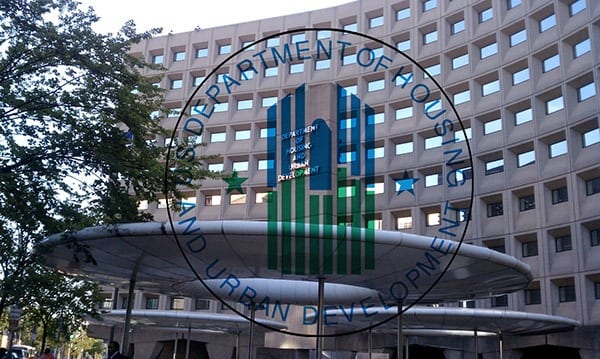
Editor: Vladimir Bajic | Tactical Investor
HUD Fraud: Unstoppable, Like the Energizer Bunny
Updated Aug 2023
The U.S. Department of Housing and Urban Development (HUD) has been scrutinised for its financial management practices over the past decade. Despite numerous recommendations for improvement, critics argue that HUD’s neglect of these suggestions has rendered its books virtually useless, leading to significant financial discrepancies and potential fraud.
From 2010 to today, HUD’s financial management has been marked by a lack of transparency and accountability. The department has repeatedly failed to implement recommended changes to its financial management systems, leading to significant errors in its financial statements. For instance, in 2016, HUD’s Office of Inspector General (OIG) found that the department’s financial statements were riddled with material errors, with an estimated $500 billion in accounting errors.
Moreover, HUD has been plagued by instances of fraud and mismanagement. In 2017, the OIG reported that HUD paid $37 million in erroneous rental assistance payments due to inadequate financial controls. In another instance, a 2019 audit revealed that HUD had improperly allocated $2.9 billion in disaster recovery funds, with some funds going to ineligible recipients.
These instances of financial mismanagement and potential fraud are not isolated incidents but rather indicative of a systemic problem within HUD. The department’s failure to implement recommended changes to its financial management systems has resulted in a lack of accountability and transparency, undermining public trust in the department.
One of the most glaring examples of HUD’s financial mismanagement is the case of the Community Development Block Grant Disaster Recovery (CDBG-DR) program. Despite receiving billions of dollars in federal funding, the program has been criticized for its lack of financial controls and oversight. In 2020, the Government Accountability Office (GAO) reported that HUD did not have a process in place to monitor the use of CDBG-DR funds, leading to significant delays in disaster recovery efforts and potential misuse of funds.
HUD Fraud Through the Years: A Disturbing Escalation
Let’s now examine HUD Fraud from a historical standpoint. Here’s what we wrote back on August 24, 2016. It’s alarming to observe how the situation has deteriorated since then. A prevailing theme in America is pursuing wealth at the expense of others.
HUD’s Neglect Renders Financial Records Useless Since 2012
Officials at the Department of Housing and Urban Development (HUD) have largely ignored 63 financial management recommendations from Congress’ investigative arm since 2012. Moreover, they have only partially followed many others. This disregard has made the agency’s $43 billion financial records nearly unusable.
The Government Accountability Office (GAO) has pointed out that HUD’s persistent management challenges persist because it hasn’t consistently incorporated the requirements and key practices recommended by the GAO into its operations. Previous efforts to address these challenges have been ineffective, primarily due to a lack of continuity in leadership, shifting priorities, and resource constraints.
The report highlights that HUD’s operational deficiencies continue to concern the GAO and others. Additionally, the department’s flawed hiring practices have raised alarms. It lacks an effective case management system for the thorough review and evaluation of candidates’ character, background, and history, leading to instances of hiring individuals with criminal backgrounds, as revealed in a 2013 Inspector General report prompted by a government employee’s mortgage fraud scheme. Dailycaller
Conclusion
In conclusion, the U.S. Department of Housing and Urban Development (HUD) has consistently neglected financial management recommendations over the past decade. This neglect has not been without consequences. It has led to significant financial discrepancies, which have raised serious concerns about the potential for fraud within the department. These discrepancies are not just numbers on a balance sheet; they represent taxpayer dollars that may not have been used as intended.
The department’s failure to implement these recommendations has profoundly impacted public trust. The American people entrust their hard-earned tax dollars to federal agencies like HUD, expecting these funds to be managed effectively and transparently. However, HUD’s financial management issues have undermined this trust. The public is left questioning whether the department can manage federal funds effectively and is committed to transparency in its operations.
To restore this trust, HUD must prioritize financial management reforms. This means not just acknowledging the recommendations that have been made but taking concrete steps to implement them. It means investing in the necessary systems and personnel to ensure that financial management is an afterthought and a department’s core function.
Moreover, HUD must demonstrate its commitment to using federal funds effectively and responsibly. This means avoiding fraud and ensuring that funds are used to maximise their impact. It means making tough decisions about allocating resources and being transparent. It means being accountable to the American people for how their tax dollars are spent.
In short, HUD’s neglect of financial management recommendations has had severe consequences. But it is not too late for the department to change course. HUD can restore public trust in its operations by prioritizing financial management reforms and demonstrating a commitment to effective and responsible use of federal funds.
Catch These Compelling Reads:













